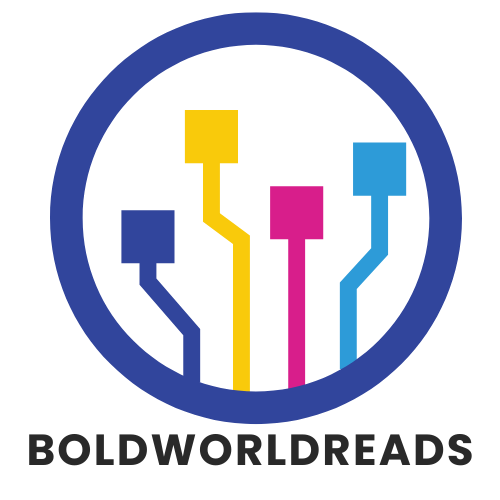In the fast-paced world of coding, having the right programming resources can mean the difference between a smooth ride and a bumpy road. Whether you’re a newbie trying to crack your first line of code or a seasoned pro debugging that pesky error, the right tools can make all the difference. Imagine trying to build a skyscraper with nothing but a rubber mallet—it’s not pretty, right?
Table of Contents
ToggleOverview of Programming Resources
Programming resources encompass a variety of tools, platforms, and educational materials essential for effective coding. These resources include integrated development environments (IDEs), online courses, and coding communities. Utilizing IDEs such as Visual Studio Code or IntelliJ IDEA streamlines the coding process significantly.
Online courses from platforms like Coursera or Udacity offer structured learning paths. Beginner-focused languages, such as Python or JavaScript, often have dedicated resources that cater to new programmers. Experienced coders benefit from advanced courses in specialized areas like machine learning or web development.
Coding communities play a vital role in resource accessibility. Platforms such as Stack Overflow and GitHub provide forums for collaboration and knowledge sharing. Engaging in these communities promotes continuous learning and problem-solving.
Documentation serves as another crucial resource. Official documentation of programming languages and frameworks provides in-depth information about functionalities and usage. Clear and concise documentation helps developers understand and utilize languages effectively.
Books remain a valuable resource in programming. Titles such as “Clean Code” by Robert C. Martin or “You Don’t Know JS” by Kyle Simpson deepen understanding of coding principles and best practices. These texts often become essential references throughout a programmer’s career.
Moreover, version control systems like Git enhance coding efficiency and collaboration. Understanding Git commands improves project management and team workflows. These tools collectively contribute to a well-rounded programming experience, upholding the idea that having the right resources is fundamental to successful coding.
Types of Programming Resources

Various types of programming resources offer support for coders at all skill levels. Each category presents unique advantages that enhance the coding journey.
Online Courses
Online courses provide structured learning paths tailored to various programming languages and frameworks. Platforms like Coursera and Udacity offer courses designed for beginners and advanced programmers alike. Learners benefit from video lectures and hands-on projects, ensuring practical experience alongside theoretical knowledge. Certificates earned upon completion can enhance a resume and showcase relevant skills in job applications.
Books and E-books
Books and e-books serve as invaluable references for coders. Titles such as “Clean Code” emphasize best practices in writing clean, maintainable code, while “You Don’t Know JS” delves deep into JavaScript concepts. Both fiction and non-fiction genres offer insights into programming philosophies and real-world applications. E-books provide convenient access on devices, allowing for on-the-go reading and continuous learning.
Tutorials and Documentation
Tutorials and documentation are essential for understanding specific programming languages and tools. Comprehensive guides are available for languages like Python, Java, and JavaScript, assisting with installation processes and core functionalities. Well-organized documentation includes code examples, making it easier to grasp complex concepts. Tutorials often complement official documentation, providing step-by-step instructions for practical coding tasks.
Forums and Communities
Forums and communities foster collaboration and knowledge sharing among programmers. Websites like Stack Overflow assist users in finding solutions to coding issues through community-driven Q&A. Platforms such as GitHub facilitate project collaboration and version control, allowing users to contribute to open-source projects. Engaging with others in these communities fosters professional growth and encourages continuous learning through shared experiences and best practices.
Evaluating Programming Resources
Evaluating programming resources involves analyzing several important factors that can greatly influence a coder’s learning and productivity.
Criteria for Selection
Relevance to specific coding goals plays a key role in resource selection. Users should consider ease of understanding, ensuring that the material matches their current skill level. Accessibility is vital; resources must be easy to access, whether online or offline. Support and community engagement also add value, allowing learners to seek help when needed. Cost can impact selection, so exploring free and paid options offers flexibility for varying budgets.
Popularity and User Ratings
Popularity often reflects a resource’s effectiveness, with widely-used materials indicating general approval among the coding community. User ratings serve as a guide, showcasing experiences from fellow learners. Analyzing reviews highlights strengths and weaknesses, providing insight into what to expect. The number of active users indicates a resource’s relevance and potential for continued updates. Tracking trending resources helps identify what’s currently favored in the programming landscape.
Recommendations for Beginners
New programmers benefit significantly from focusing on essential resources that facilitate learning and development. Finding the right tools and communities contributes to a smoother coding journey.
Essential Resources for New Programmers
Integrated development environments, or IDEs, simplify coding tasks. Visual Studio Code ranks among the most popular IDEs, known for its versatility and user-friendly interface. Online platforms like Codecademy and freeCodeCamp provide interactive courses that promote hands-on learning. Books such as “Python Crash Course” serve as excellent references, laying a strong foundation in programming concepts. Additionally, communities like Stack Overflow offer immediate assistance for coding issues, fostering collaboration and knowledge exchange.
Tips for Getting Started
Setting clear goals is essential for new programmers, as this provides direction for their learning journey. Prioritizing topics such as syntax, logic, and problem-solving builds foundational skills. Engaging with online tutorials and courses aids comprehension and reinforces newly learned concepts. Joining coding communities encourages users to ask questions and share knowledge. Regular practice enables skill improvement, allowing programmers to apply theoretical concepts to real-world problems. Exploring various programming languages helps identify personal preferences and strengths, ultimately guiding future learning paths.
Advanced Programming Resources
Advanced programming requires focused resources that deepen understanding and refine skills. Specialized courses and advanced books play crucial roles in elevating a coder’s expertise.
Specialized Courses
Specialized courses cater to specific technologies and languages. Platforms like Pluralsight offer in-depth tutorials on frameworks such as Angular and React. Coursera features programs from universities, enabling learners to engage in advanced machine learning and data science. These structured courses often incorporate projects, reinforcing application of concepts. Additionally, Udacity’s Nanodegree programs provide real-world scenarios, allowing for hands-on experience. Certification options further enhance a coder’s professional profile, demonstrating mastery of advanced topics.
Advanced Books and Publications
Advanced books and publications offer critical insights into programming concepts and methodologies. Titles like “Design Patterns: Elements of Reusable Object-Oriented Software” provide essential guidance on software architecture. “The Pragmatic Programmer” emphasizes techniques for improving programming practices. Journals such as the IEEE Transactions on Software Engineering provide cutting-edge research and developments in the field. Engaging with these materials fosters a deeper understanding of both theoretical and practical aspects. Utilizing publications from experienced authors strengthens programming capabilities, enabling coders to tackle complex challenges effectively.
The right programming resources can transform a coder’s journey. By leveraging IDEs online courses and coding communities, individuals can enhance their skills and confidence. For beginners focusing on foundational knowledge and practical experience is key while advanced programmers should seek specialized materials to refine their expertise.
Evaluating resources based on relevance and community feedback ensures that learners choose tools that align with their goals. As the coding landscape evolves staying updated with trending resources and engaging with peers fosters continuous growth. Embracing these resources not only streamlines the learning process but also cultivates a supportive environment for all coders.



